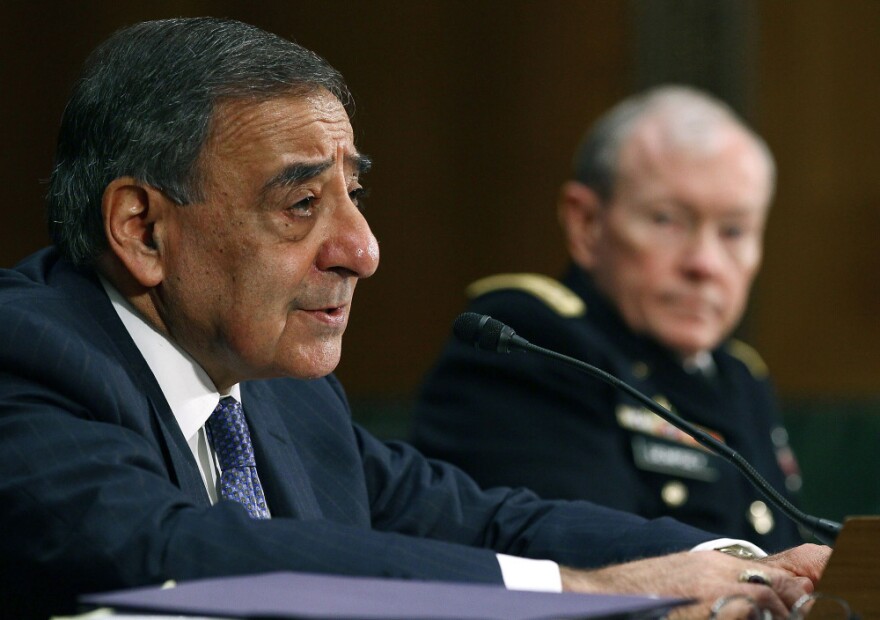Defense Secretary Leon Panetta told the Senate Armed Services Committee today that the "terrible situation" in Syria "has no simple answers."
Pannetta was facing tough questions from Sen. John McCain, a Republican from Arizona, who on Monday called for U.S.-led air strikes on the security forces of Syrian President Bashar Assad.
"In past situations, America has led. We're not leading, Mr. Secretary," McCain told Panetta.
Fox News reports that Panetta defended the administrations decision not to intervene militarily.
"What doesn't make sense is to take unilateral action right now," Panetta said according to Fox News. "I've got to make very sure we know what the mission is ... achieving that mission at what price."
Panetta was echoing the sentiments expressed by President Obama yesterday, who said any military action should be weighed heavily.
"For us to take military action unilaterally, as some have suggested, or to think that somehow there is some simple solution, I think is a mistake," Obama said. "What happened in Libya was we mobilized the international community, had a U.N. Security Council mandate, had the full cooperation of the region, Arab states, and we knew that we could execute very effectively in a relatively short period of time. This is a much more complicated situation."
Russia and China have resisted any calls for Assad to step down.
Panetta and Army Gen. Martin Dempsey said the track right now is for diplomacy, but the military option was available. The AP reports that they also offered caution when discussing those options. The AP reports:
"Dempsey said among the military options are enforcement of a no-fly zone and humanitarian relief. He said a long-term, sustained air campaign would pose a challenge because Syria's air defenses are five times more sophisticated than Libya's. He said Syria's chemical and biological weapons stockpile is 100 times larger than Libya's.
"He said suppressing the Syrian air defenses would take an extended period of time and a significant number of aircraft, an effort that would have to be led by the United States. One complication, Panetta and Dempsey pointed out, is the location of the sophisticated air defenses: populous neighborhoods. If the U.S. unleashed its military power, that could mean scores of unintended deaths."
In other related news, the AP and Reuters report that a Syrian Arab Red Crescent crew — along with the United Nation's humanitarian chief — made it into the besieged Baba Amr neighborhood of Homs.
Quoting a Red Cross spokesman, the AP reports the crew toured the city for about 45 minutes and found "most inhabitants have fled the shattered" neighborhood.
NPR's Peter Kenyon talked to our Newscast unit from a refugee camp in southern Turkey. He said conditions are tight with 11,000 people but considering it's a refugee camp, conditions are "pretty good."
Peter reports that the stories he's been hearing, however, paint a picture of desperation. He says he's heard that some Syrians who are not physically able to flee to refugee camps in Turkey and Lebanon, are hiding out in caves.
Peter says many are wondering why there hasn't been international effort to stop the bloodshed.
Copyright 2020 NPR. To see more, visit https://www.npr.org.



